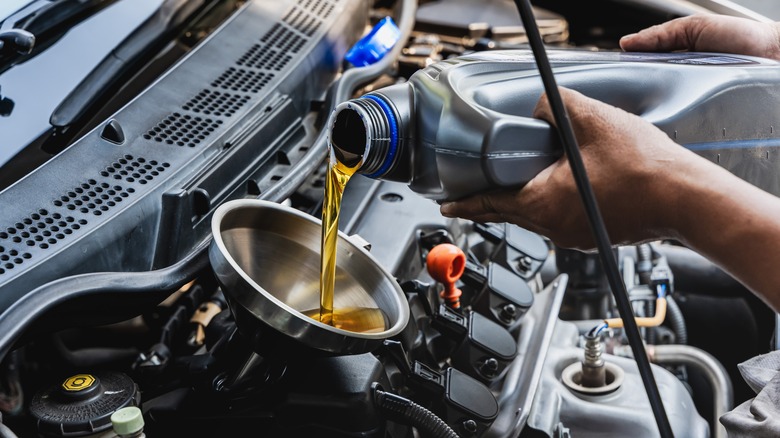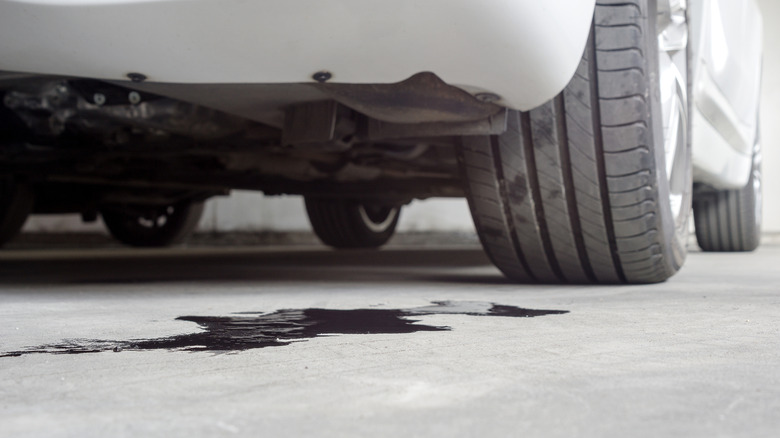Do you often find that your oil level is lower than you expect when you check it, or do you get a lot of grief from the tech at the oil change shop about your oil change intervals? If so, your engine might be consuming more oil than is quite normal. All engines consume a tiny bit of oil as they operate as this is just part and parcel of the internal combustion process. Oil lubricates cylinders and keeps valve seals soft and limber — among other things — and small amounts are burned or otherwise consumed as this happens. This shouldn’t be noticeable on a healthy engine that’s working properly. If your car is consuming a lot of oil, however, you could have a serious problem on your hands.
Before we get into the thick of this article, I’d like to point out that we’re talking about oil consumption here, not oil burning. If your car is burning oil you’ll know it by the blue-white smoke coming out of the tailpipe and the hot, acrid smell of burning oil that permeates everything. Oil consumption is either oil loss inside the engine or an external leak, and doesn’t necessarily mean that the engine is burning that lost oil.
Nevertheless, it’s important to know why your engine is consuming oil, so that you can get it fixed in proper time.
What should I look for?
The most common cause of excess oil consumption, and the easiest to identify, is leaks. As an engine ages and goes through countless heat cycles, its various gaskets, seals, and o-rings begin to wear out. As they do, the pressure inside the engine will push oil past them or, in particularly bad cases, the oil will just seep out on its own even when the engine isn’t running. If you suspect a leak, first check the ground around where you park your vehicle. Sometimes, however, a leak is high up on the engine and the oil doesn’t make it all the way to the ground. If there’s no obvious oil on the ground, you should check around your engine to see if the head, block, or any surrounding areas are oily.
Leaks are not the only way that an engine consumes oil. Depending on the engine, working it too hard, lugging it, or operating it in high temperatures can make an engine consume more oil than usual. Oil can also be consumed by extra thin oil getting past piston rings or valve guides and either being burned up or just flowing through the exhaust system and out of the tailpipe.
Blowby — a process by which oil, combustion gasses, and unburned fuel/air mixture are pushed past an engine’s piston rings and into the crankcase — is another common cause of excess oil consumption typically caused by worn or stuck piston rings. This is easily spotted by checking your PCV valve. If your PCV is oily or clogged, or if a lot of smoke comes out while the engine is running, chances are you have some blowby.
So, now what?
If your car is using excess oil, and you’ve determined how and why, what should you do about it? Honestly, you should really get your vehicle into the shop as soon as possible. Small leaks are easy enough to live with if you don’t mind your car or truck leaving oil everywhere it stops — though other people and places may mind and it’s not exactly great for drainage runoff. Unfortunately, small leaks often become large leaks, and if that happens you can suddenly find yourself running dangerously low on oil or even running completely dry.
If you notice excess oil consumption, take your car into the dealership or your mechanic as soon as possible. Sure, it might be a pain and fixing a leak might cost some money, but putting a whole new engine in or replacing a vehicle altogether is even more expensive.




